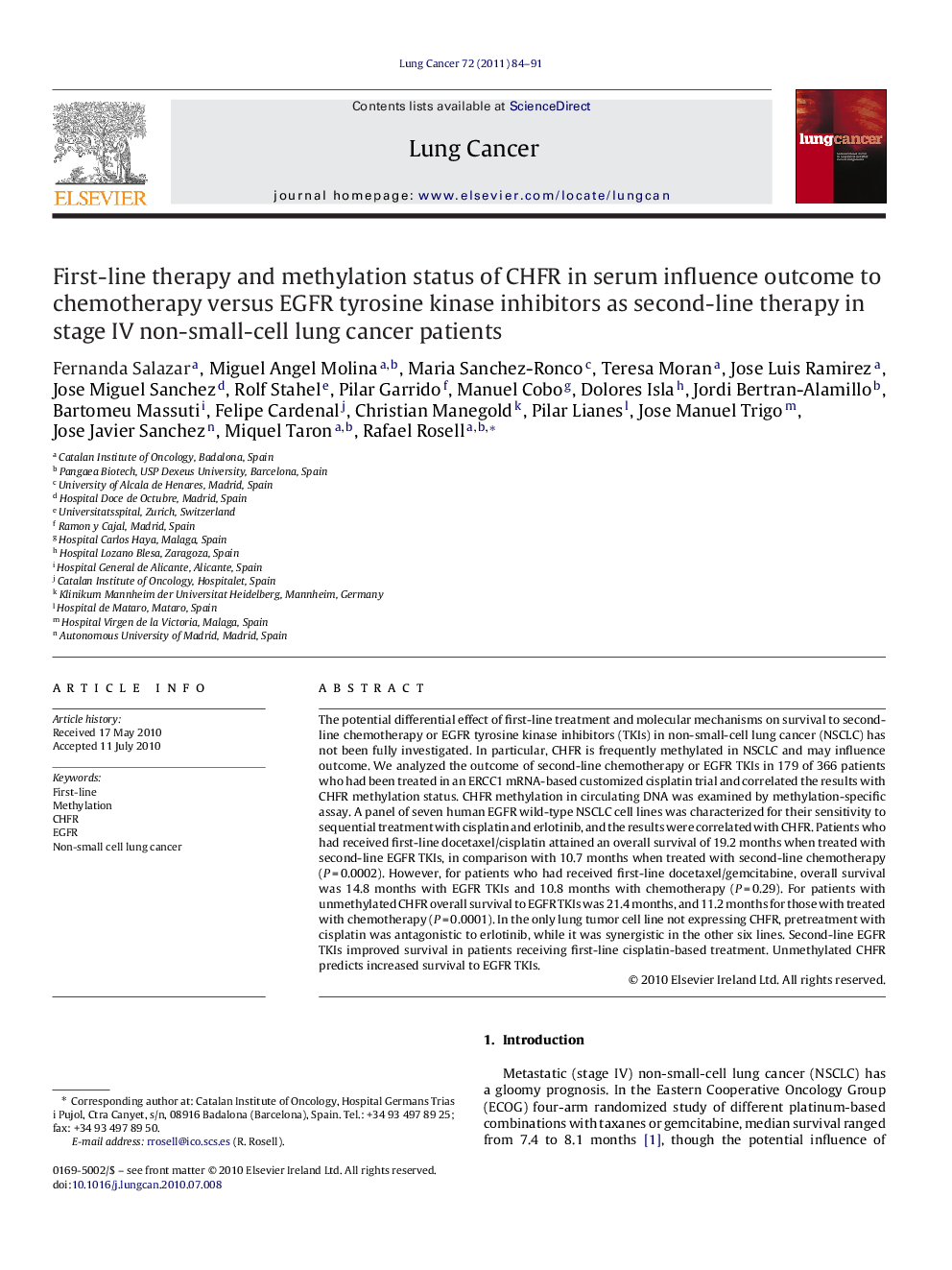| Article ID | Journal | Published Year | Pages | File Type |
|---|---|---|---|---|
| 2141499 | Lung Cancer | 2011 | 8 Pages |
The potential differential effect of first-line treatment and molecular mechanisms on survival to second-line chemotherapy or EGFR tyrosine kinase inhibitors (TKIs) in non-small-cell lung cancer (NSCLC) has not been fully investigated. In particular, CHFR is frequently methylated in NSCLC and may influence outcome. We analyzed the outcome of second-line chemotherapy or EGFR TKIs in 179 of 366 patients who had been treated in an ERCC1 mRNA-based customized cisplatin trial and correlated the results with CHFR methylation status. CHFR methylation in circulating DNA was examined by methylation-specific assay. A panel of seven human EGFR wild-type NSCLC cell lines was characterized for their sensitivity to sequential treatment with cisplatin and erlotinib, and the results were correlated with CHFR. Patients who had received first-line docetaxel/cisplatin attained an overall survival of 19.2 months when treated with second-line EGFR TKIs, in comparison with 10.7 months when treated with second-line chemotherapy (P = 0.0002). However, for patients who had received first-line docetaxel/gemcitabine, overall survival was 14.8 months with EGFR TKIs and 10.8 months with chemotherapy (P = 0.29). For patients with unmethylated CHFR overall survival to EGFR TKIs was 21.4 months, and 11.2 months for those with treated with chemotherapy (P = 0.0001). In the only lung tumor cell line not expressing CHFR, pretreatment with cisplatin was antagonistic to erlotinib, while it was synergistic in the other six lines. Second-line EGFR TKIs improved survival in patients receiving first-line cisplatin-based treatment. Unmethylated CHFR predicts increased survival to EGFR TKIs.
